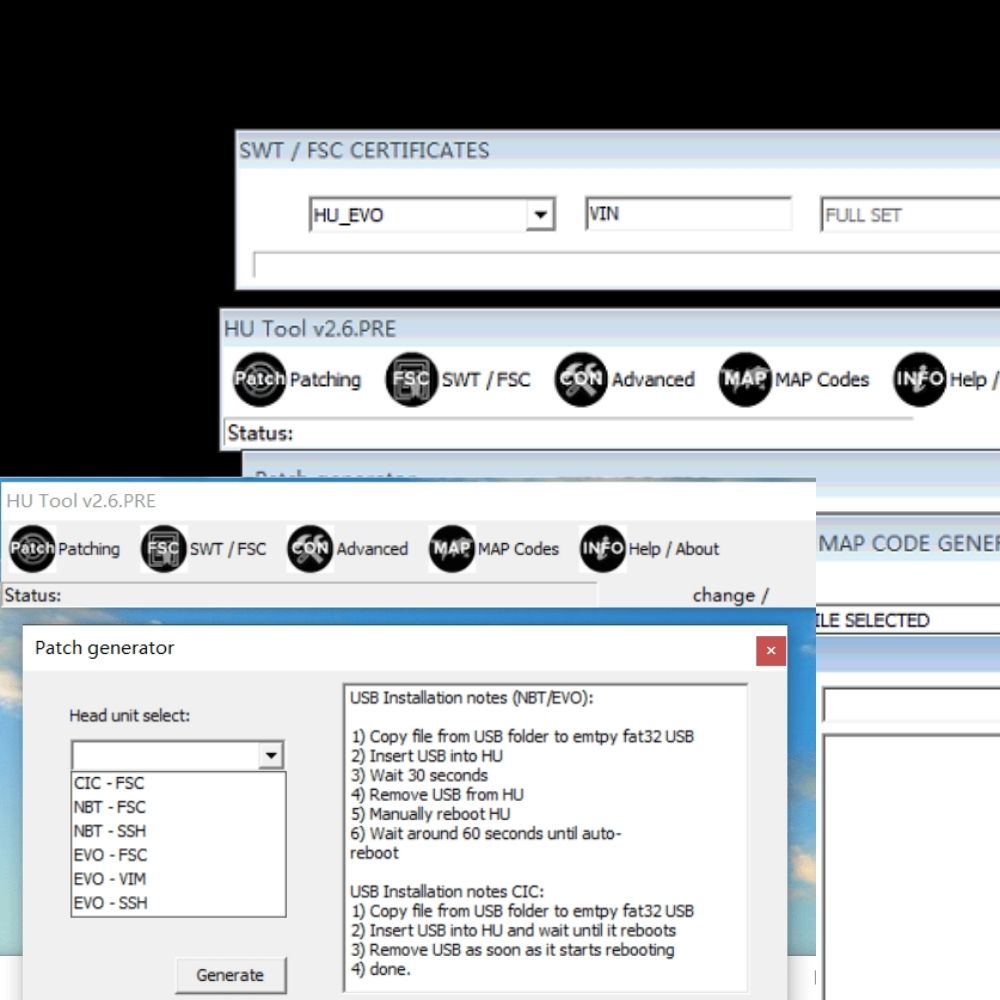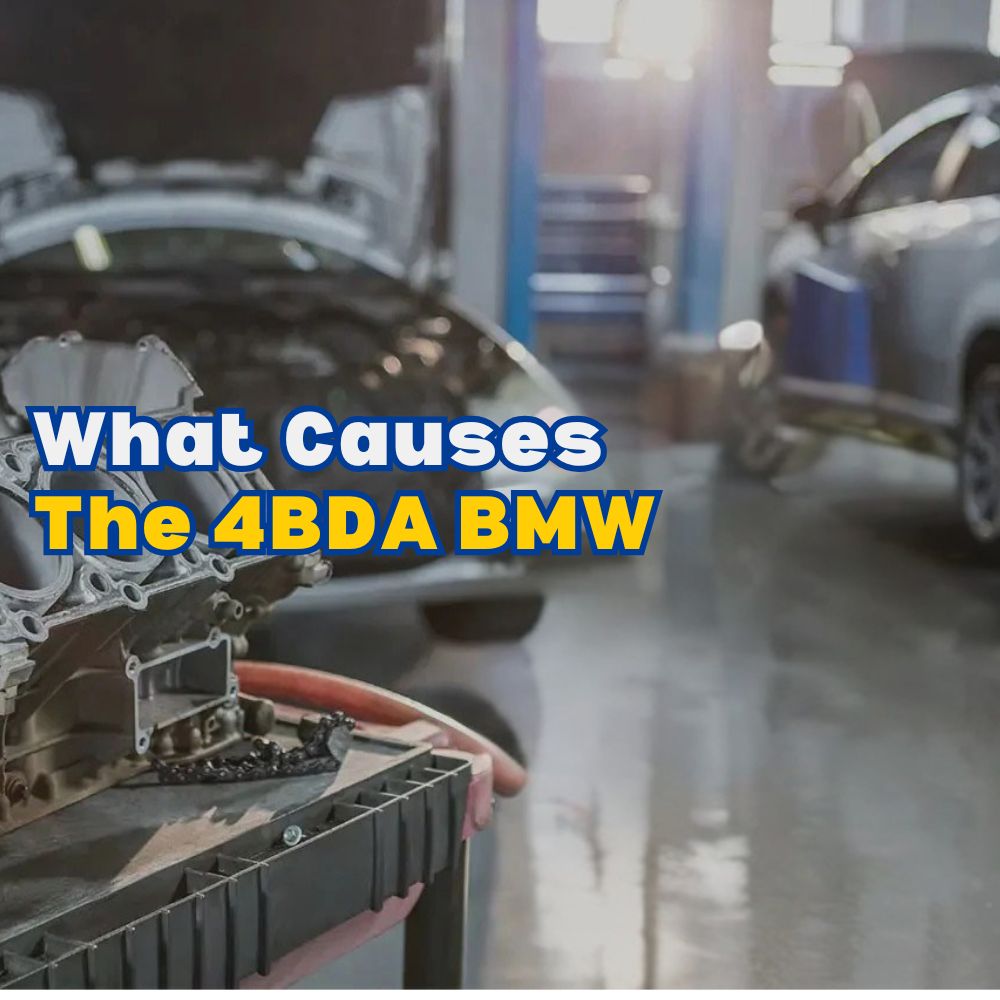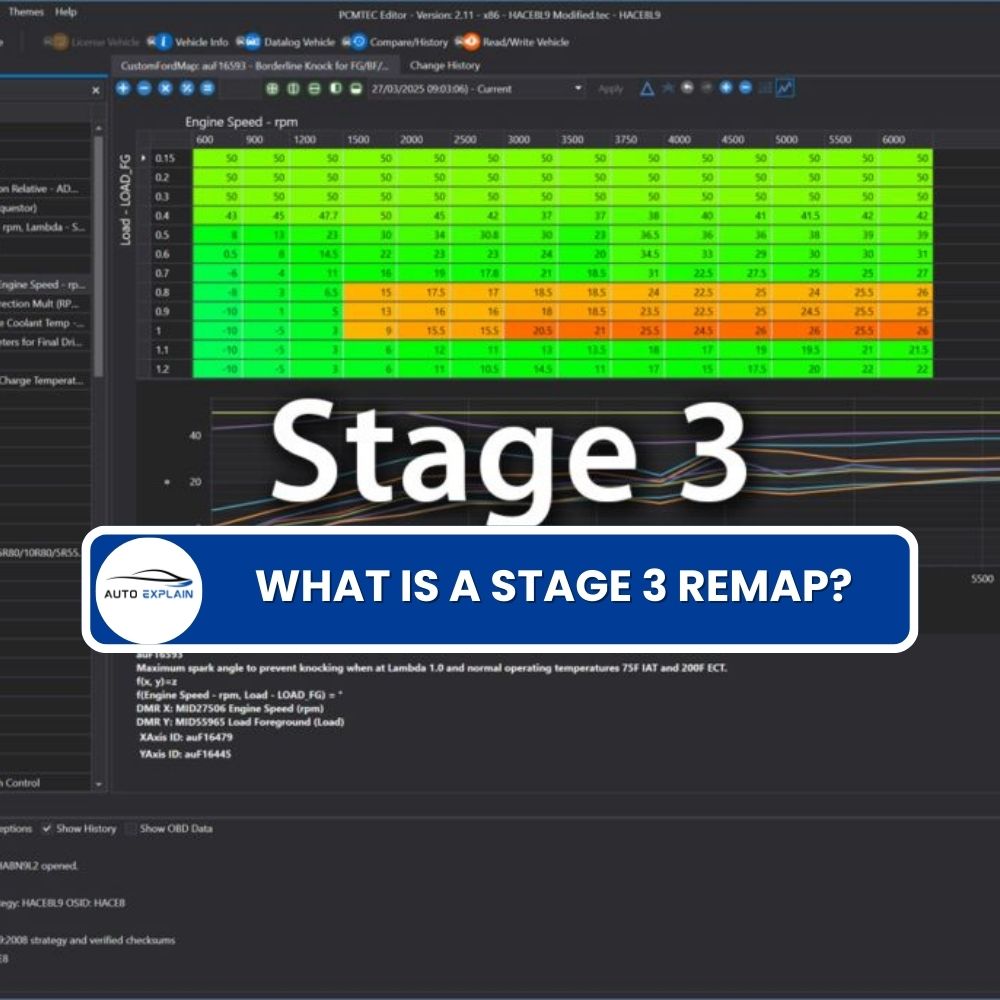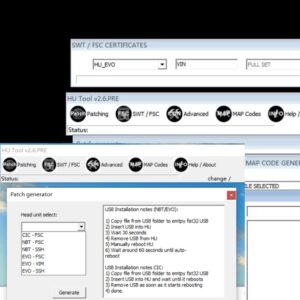

What Causes The 4BDA BMW Fault Code?
The 4BDA BMW fault code signals issues within the fuel injection system, often stemming from problems with fuel pressure or injector performance. Addressing this code effectively requires a systematic diagnostic approach. AutoExplain delivers the expert insights and remote support necessary to troubleshoot and rectify such complex automotive issues, ensuring your BMW operates at its peak with reliable performance.
1. What Does the 4BDA BMW Fault Code Indicate?
The 4BDA BMW fault code indicates a problem related to the fuel injection system, specifically pointing towards issues with the fuel quantity adaptation or fuel pressure regulation in certain cylinders. It often suggests the engine control unit (ECU) is detecting a deviation from the expected fuel delivery parameters.
The 4BDA fault code can be triggered by a range of underlying issues, including:
- Faulty Fuel Injectors: Malfunctioning injectors can cause incorrect fuel delivery, leading to the 4BDA code. This could be due to clogging, electrical faults, or mechanical failures within the injector itself.
- Fuel Pressure Problems: Inconsistent or inadequate fuel pressure supplied to the fuel rail can disrupt the proper functioning of the fuel injectors, triggering the code. Issues could stem from a failing fuel pump, pressure regulator, or clogged fuel filter.
- Sensor Malfunctions: Issues with the fuel pressure sensor or other related sensors can supply inaccurate data to the ECU, resulting in the 4BDA code.
- Wiring or Connection Issues: Damaged wiring or loose connections in the fuel injection system can cause erratic signals and trigger the fault code.
- ECU Issues: Although rare, a malfunctioning ECU can incorrectly interpret data or fail to properly control the fuel injection system, leading to the 4BDA fault code.
2. What Are the Common Symptoms Associated with the 4BDA BMW Fault Code?
Common symptoms associated with the 4BDA BMW fault code can provide valuable clues during the diagnostic process.
- Rough Engine Idle: The engine may idle unevenly or roughly due to inconsistent fuel delivery to the cylinders.
- Misfiring: Cylinders may misfire if they do not receive the correct amount of fuel, leading to reduced power and performance.
- Reduced Engine Performance: Overall engine power and acceleration may be noticeably diminished.
- Fuel Efficiency Reduction: The vehicle may experience a decrease in fuel economy due to inefficient fuel delivery.
- Stalling: In severe cases, the engine may stall, particularly at low speeds or when idling.
- Check Engine Light: The check engine light on the dashboard will typically illuminate to alert the driver to the problem.
- Limp Mode: The vehicle may enter limp mode, restricting engine power to prevent further damage.
- Difficulty Starting: The engine might be harder to start, requiring longer cranking times.
- Unusual Noises: Unusual noises from the engine, such as popping or sputtering, can indicate fuel delivery problems.
- Increased Emissions: The vehicle may produce higher levels of emissions, potentially failing emissions tests.
3. How to Diagnose the 4BDA BMW Fault Code?
Diagnosing the 4BDA BMW fault code requires a systematic approach to pinpoint the root cause. Here’s a step-by-step guide:
- Initial Scan: Use an OBD-II scanner to confirm the presence of the 4BDA code and check for any other related fault codes.
- Visual Inspection: Inspect the fuel injectors, fuel lines, and wiring for any visible damage, such as cracks, leaks, or frayed wires.
- Fuel Pressure Test:
- Use a fuel pressure gauge to measure the fuel pressure at the fuel rail.
- Compare the reading to the manufacturer’s specifications to ensure it is within the correct range.
- Check the fuel pressure regulator for proper function.
- Injector Testing:
- Use a multimeter to check the resistance of each fuel injector.
- Compare the readings to the manufacturer’s specifications.
- Perform an injector balance test to assess the fuel flow from each injector.
- Wiring and Connection Check:
- Inspect the wiring harness and connectors for corrosion, damage, or loose connections.
- Use a multimeter to check the continuity of the wiring.
- Sensor Analysis:
- Check the fuel pressure sensor for proper function using a diagnostic tool.
- Verify that the sensor readings are accurate and within the specified range.
- ECU Diagnosis:
- Inspect the ECU for any signs of damage or corrosion.
- Use a diagnostic tool to check the ECU software and ensure it is up to date.
- Fuel Filter Check:
- Inspect the fuel filter for clogs or blockages.
- Replace the fuel filter if it is dirty or restricted.
- Fuel Pump Test:
- Check the fuel pump for proper operation.
- Listen for unusual noises from the fuel pump, which may indicate a problem.
- Verify that the fuel pump is delivering the correct amount of fuel.
- Smoke Test:
- Perform a smoke test to check for vacuum leaks in the intake manifold or fuel system.
- Repair any leaks that are found.
4. What Are the Possible Solutions for Resolving the 4BDA BMW Fault Code?
Addressing the 4BDA BMW fault code effectively depends on accurately identifying the underlying cause through thorough diagnostics. Here are potential solutions:
- Fuel Injector Replacement: If the fuel injectors are found to be faulty, replacing them with new ones can resolve the issue. Ensure the new injectors are compatible with the vehicle’s specifications.
- Fuel Pump Replacement: A failing fuel pump can cause inadequate fuel pressure, triggering the 4BDA code. Replacing the fuel pump can restore proper fuel delivery.
- Fuel Pressure Regulator Replacement: A malfunctioning fuel pressure regulator can lead to inconsistent fuel pressure. Replacing it can help maintain the correct pressure levels in the fuel rail.
- Wiring Repair or Replacement: Damaged or corroded wiring can disrupt the signals to the fuel injectors and other components. Repairing or replacing the affected wiring can restore proper function.
- Sensor Replacement: Faulty sensors, such as the fuel pressure sensor, can provide incorrect data to the ECU. Replacing these sensors can ensure accurate readings and proper fuel management.
- ECU Reprogramming or Replacement: In rare cases, the ECU may be the cause of the problem. Reprogramming or replacing the ECU can resolve issues related to its software or hardware.
- Fuel Filter Replacement: A clogged fuel filter can restrict fuel flow and cause fuel pressure problems. Replacing the fuel filter can ensure a steady supply of fuel to the engine.
- Fuel Line Repair: Damaged or leaking fuel lines can cause fuel pressure loss. Repairing or replacing these lines can prevent fuel leaks and maintain proper fuel pressure.
- Intake Manifold Cleaning: Carbon buildup in the intake manifold can affect airflow and fuel delivery. Cleaning the intake manifold can improve engine performance and resolve fuel-related issues.
- Software Update: Sometimes, a software update for the ECU can address known issues related to fuel management and resolve the 4BDA code.
5. What is the Role of the Fuel Injectors in Causing the 4BDA Fault Code?
Fuel injectors play a crucial role in the efficient operation of an engine, and their malfunction can directly contribute to the 4BDA fault code in BMW vehicles. The primary function of fuel injectors is to deliver a precise amount of fuel into the engine’s cylinders at the correct time. When these injectors fail to operate as intended, it can lead to a variety of issues that trigger the 4BDA code.
Here’s a detailed look at how fuel injectors can cause this fault code:
- Inconsistent Fuel Delivery: Faulty fuel injectors may deliver too much or too little fuel to the cylinders. This inconsistency can disrupt the air-fuel mixture, leading to poor combustion and triggering the 4BDA code.
- Clogged Injectors: Over time, fuel injectors can become clogged with deposits and debris, restricting the flow of fuel. This can result in a lean fuel mixture, misfires, and the 4BDA fault code.
- Leaking Injectors: Leaking fuel injectors can cause excess fuel to enter the cylinders, leading to a rich fuel mixture. This can result in poor fuel economy, rough idling, and the 4BDA code.
- Electrical Malfunctions: Electrical issues within the fuel injectors, such as short circuits or open circuits, can prevent them from functioning correctly. This can disrupt fuel delivery and trigger the 4BDA code.
- Mechanical Failures: Mechanical failures within the fuel injectors, such as a stuck needle valve, can also disrupt fuel delivery and cause the 4BDA fault code.
- Poor Spray Pattern: A damaged or worn fuel injector may produce an improper spray pattern, resulting in inefficient combustion and the 4BDA code.
- Delayed Response: Slow or delayed response from the fuel injectors can disrupt the timing of fuel delivery, leading to misfires and the 4BDA fault code.
- Incorrect Calibration: If the fuel injectors are not properly calibrated, they may deliver the wrong amount of fuel, leading to the 4BDA fault code.
- Injector Imbalance: When some injectors deliver more fuel than others, it can create an imbalance in the engine’s cylinders, triggering the 4BDA code.
- Overheated Injectors: Overheating can damage the fuel injectors and cause them to malfunction, leading to inconsistent fuel delivery and the 4BDA code.
6. How Does Fuel Pressure Affect the 4BDA BMW Fault Code?
Fuel pressure is a critical factor in the proper operation of the fuel injection system, and any deviations from the specified pressure range can significantly impact engine performance and trigger the 4BDA BMW fault code. The fuel pressure must be maintained within a narrow range to ensure that the fuel injectors can deliver the correct amount of fuel at the right time.
Here’s how fuel pressure issues can affect the 4BDA code:
- Low Fuel Pressure:
- Lean Fuel Mixture: Low fuel pressure results in an insufficient amount of fuel being delivered to the cylinders, creating a lean fuel mixture.
- Misfires: Lean conditions can cause misfires, especially during acceleration or high-load conditions.
- Reduced Performance: The engine may experience a noticeable decrease in power and responsiveness.
- Stalling: In severe cases, low fuel pressure can cause the engine to stall, particularly at idle.
- 4BDA Code Trigger: The ECU detects the lean condition and triggers the 4BDA fault code.
- High Fuel Pressure:
- Rich Fuel Mixture: High fuel pressure results in an excessive amount of fuel being delivered to the cylinders, creating a rich fuel mixture.
- Poor Fuel Economy: A rich condition can lead to increased fuel consumption.
- Rough Idle: The engine may idle roughly due to the improper air-fuel mixture.
- Increased Emissions: Rich conditions can cause higher levels of emissions, potentially failing emissions tests.
- 4BDA Code Trigger: The ECU detects the rich condition and triggers the 4BDA fault code.
- Inconsistent Fuel Pressure:
- Erratic Engine Performance: Fluctuations in fuel pressure can cause the engine to run erratically, with varying levels of power and responsiveness.
- Difficulty Starting: Inconsistent fuel pressure can make it difficult to start the engine, especially in cold conditions.
- Fuel Injector Problems: Fluctuating fuel pressure can damage the fuel injectors over time, leading to further issues.
- 4BDA Code Trigger: The ECU detects the inconsistent fuel pressure and triggers the 4BDA fault code.
- Fuel Pressure Regulator Issues:
- Malfunctioning Regulator: A faulty fuel pressure regulator can fail to maintain the correct fuel pressure, leading to both high and low pressure conditions.
- Diaphragm Leaks: Leaks in the fuel pressure regulator diaphragm can cause fuel pressure to drop, resulting in a lean condition.
- 4BDA Code Trigger: The ECU detects the fuel pressure regulator malfunction and triggers the 4BDA fault code.
7. What Role Do Sensors Play in the 4BDA BMW Fault Code?
Sensors play a critical role in monitoring various parameters of the engine and fuel system, providing data to the ECU that is essential for proper engine management. When these sensors malfunction or provide inaccurate readings, it can lead to the 4BDA BMW fault code.
- Fuel Pressure Sensor:
- Function: The fuel pressure sensor monitors the pressure of the fuel in the fuel rail and sends this information to the ECU.
- Impact: If the fuel pressure sensor fails or provides inaccurate readings, the ECU may not be able to properly adjust fuel delivery, leading to the 4BDA code.
- Symptoms: Symptoms of a faulty fuel pressure sensor include erratic engine performance, rough idling, and difficulty starting.
- Mass Airflow (MAF) Sensor:
- Function: The MAF sensor measures the amount of air entering the engine.
- Impact: If the MAF sensor is dirty or malfunctioning, it can provide incorrect data to the ECU, leading to an improper air-fuel mixture and the 4BDA code.
- Symptoms: Symptoms of a faulty MAF sensor include poor fuel economy, reduced engine power, and stalling.
- Oxygen (O2) Sensors:
- Function: O2 sensors monitor the oxygen content in the exhaust gases, providing feedback to the ECU to adjust the air-fuel mixture.
- Impact: Faulty O2 sensors can cause the ECU to make incorrect adjustments to the fuel mixture, leading to the 4BDA code.
- Symptoms: Symptoms of faulty O2 sensors include poor fuel economy, increased emissions, and a rough-running engine.
- Crankshaft Position Sensor:
- Function: The crankshaft position sensor monitors the position and speed of the crankshaft.
- Impact: If the crankshaft position sensor fails, the ECU may not be able to accurately time fuel injection and ignition, leading to misfires and the 4BDA code.
- Symptoms: Symptoms of a faulty crankshaft position sensor include difficulty starting, stalling, and a check engine light.
- Camshaft Position Sensor:
- Function: The camshaft position sensor monitors the position of the camshaft.
- Impact: A malfunctioning camshaft position sensor can disrupt the timing of fuel injection, leading to misfires and the 4BDA code.
- Symptoms: Symptoms of a faulty camshaft position sensor include difficulty starting, rough idling, and reduced engine performance.
- Throttle Position Sensor (TPS):
- Function: The TPS monitors the position of the throttle plate.
- Impact: A faulty TPS can provide incorrect data to the ECU, leading to improper fuel delivery and the 4BDA code.
- Symptoms: Symptoms of a faulty TPS include erratic engine performance, poor acceleration, and stalling.
8. How Do Wiring and Connection Issues Contribute to the 4BDA BMW Fault Code?
Wiring and connection issues can significantly contribute to the 4BDA BMW fault code by disrupting the signals and power supply to various components within the fuel injection system. These issues can lead to inaccurate data being sent to the ECU, causing it to make incorrect adjustments to fuel delivery and trigger the fault code.
Here’s how wiring and connection problems can affect the 4BDA code:
- Corrosion:
- Impact: Corrosion on wiring and connectors can increase resistance, reducing the voltage and current reaching the fuel injectors and sensors.
- Symptoms: Corrosion can lead to poor engine performance, misfires, and the 4BDA code.
- Locations: Common areas for corrosion include connectors near the engine, under the vehicle, and in areas exposed to moisture.
- Loose Connections:
- Impact: Loose connections can cause intermittent signals or a complete loss of signal to the fuel injectors, fuel pressure sensor, and other critical components.
- Symptoms: Loose connections can result in erratic engine behavior, stalling, and the 4BDA code.
- Causes: Vibration, temperature changes, and physical stress can loosen connections over time.
- Damaged Wiring:
- Impact: Damaged wiring, such as frayed, cracked, or cut wires, can disrupt the flow of electricity and cause short circuits or open circuits.
- Symptoms: Damaged wiring can lead to misfires, reduced engine power, and the 4BDA code.
- Causes: Rodents, heat, and physical abrasion can damage wiring.
- Short Circuits:
- Impact: Short circuits occur when a wire comes into contact with ground or another wire, causing excessive current flow and potentially damaging components.
- Symptoms: Short circuits can lead to blown fuses, electrical malfunctions, and the 4BDA code.
- Diagnosis: Identifying short circuits requires careful inspection of the wiring harness and the use of a multimeter.
- Open Circuits:
- Impact: Open circuits occur when a wire is broken or disconnected, preventing the flow of electricity to a component.
- Symptoms: Open circuits can cause a complete failure of the affected component, leading to misfires, stalling, and the 4BDA code.
- Diagnosis: Diagnosing open circuits requires checking the continuity of the wiring with a multimeter.
- Poor Ground Connections:
- Impact: Poor ground connections can cause electrical noise and interference, leading to inaccurate sensor readings and improper operation of the fuel injectors.
- Symptoms: Poor ground connections can result in erratic engine behavior, misfires, and the 4BDA code.
- Locations: Common ground points include those on the engine block, chassis, and firewall.
9. How to Prevent the 4BDA BMW Fault Code?
Preventing the 4BDA BMW fault code involves proactive maintenance and care of the vehicle’s fuel and electrical systems. Regular attention to these areas can help avoid the issues that lead to this fault code.
- Regular Fuel System Cleaning:
- Action: Use fuel system cleaners periodically to remove deposits from fuel injectors and other components.
- Benefits: Helps maintain proper fuel flow and prevents clogging.
- Fuel Filter Replacement:
- Action: Replace the fuel filter according to the manufacturer’s recommended schedule.
- Benefits: Ensures a steady supply of clean fuel to the engine, preventing fuel pressure problems.
- Wiring Inspection:
- Action: Regularly inspect wiring harnesses and connectors for signs of corrosion, damage, or loose connections.
- Benefits: Prevents electrical issues that can disrupt the signals to fuel injectors and sensors.
- Proper Fuel Quality:
- Action: Use high-quality fuel from reputable sources.
- Benefits: Avoids contaminants that can clog fuel injectors and damage fuel system components.
- Sensor Maintenance:
- Action: Keep sensors clean and replace them if they show signs of malfunction or failure.
- Benefits: Ensures accurate readings and proper engine management.
- Professional Check-ups:
- Action: Schedule regular maintenance with a qualified technician to inspect and maintain the fuel and electrical systems.
- Benefits: Catches potential issues early before they lead to major problems.
- Avoid Fuel Starvation:
- Action: Avoid running the fuel tank extremely low.
- Benefits: Prevents debris from the bottom of the tank from being drawn into the fuel system.
- Maintain Ground Connections:
- Action: Ensure all ground connections are clean and secure.
- Benefits: Prevents electrical noise and interference that can affect sensor readings.
- Address Leaks Promptly:
- Action: Fix any fuel or vacuum leaks as soon as they are detected.
- Benefits: Prevents fuel pressure problems and ensures proper air-fuel mixture.
- ECU Updates:
- Action: Keep the ECU software up to date with the latest updates from the manufacturer.
- Benefits: Addresses known issues and improves engine management.
10. How Can AutoExplain Assist with Diagnosing and Resolving the 4BDA BMW Fault Code?
AutoExplain offers expert remote support to diagnose and resolve the 4BDA BMW fault code, providing a comprehensive solution for automotive technicians and vehicle owners.
- Expert Remote Diagnostics:
- Service: AutoExplain provides remote diagnostic services using advanced tools and experienced technicians.
- Benefits: Technicians can remotely access your vehicle’s diagnostic system to identify the root cause of the 4BDA fault code.
- Step-by-Step Troubleshooting:
- Service: AutoExplain offers step-by-step troubleshooting guides tailored to the 4BDA BMW fault code.
- Benefits: These guides help technicians systematically diagnose and address the issue, saving time and reducing guesswork.
- ECU Programming and Software Updates:
- Service: AutoExplain provides ECU programming and software update services to ensure your vehicle’s computer is running the latest software.
- Benefits: Updating the ECU can resolve known issues related to fuel management and improve engine performance.
- Component Testing and Validation:
- Service: AutoExplain assists with testing and validating the functionality of fuel injectors, sensors, and other components.
- Benefits: Ensures that all components are working correctly and helps identify any faulty parts that need replacement.
- Wiring and Connection Support:
- Service: AutoExplain offers guidance on inspecting and repairing wiring and connections related to the fuel injection system.
- Benefits: Helps technicians identify and fix electrical issues that can contribute to the 4BDA fault code.
- Data Analysis and Interpretation:
- Service: AutoExplain provides data analysis and interpretation services to help technicians understand the data from diagnostic tools.
- Benefits: Ensures accurate diagnosis and effective solutions.
- Remote Training and Education:
- Service: AutoExplain offers remote training and education programs for automotive technicians.
- Benefits: Enhances their knowledge and skills in diagnosing and resolving complex issues like the 4BDA BMW fault code.
- Access to Technical Resources:
- Service: AutoExplain provides access to a comprehensive library of technical resources, including repair manuals, wiring diagrams, and technical bulletins.
- Benefits: Supports technicians with the information they need to perform accurate diagnoses and repairs.
- Real-time Support via WhatsApp and Email:
- Service: AutoExplain offers real-time technical support via WhatsApp +1(936)2896695 and email ([email protected]).
- Benefits: Provides immediate assistance and guidance to technicians in the field.
- On-Demand Expert Advice:
- Service: AutoExplain connects technicians with experienced automotive experts who can provide on-demand advice and support.
- Benefits: Ensures access to specialized knowledge and expertise when needed.
FAQ: 4BDA BMW Fault Code
- What does the 4BDA fault code specifically refer to in BMW vehicles?
The 4BDA fault code in BMW vehicles indicates an issue with the fuel quantity adaptation or fuel pressure regulation in specific cylinders.
- Can a faulty fuel injector cause the 4BDA code?
Yes, a faulty fuel injector is a common cause of the 4BDA code, leading to inconsistent fuel delivery.
- How does low fuel pressure trigger the 4BDA fault code?
Low fuel pressure results in a lean fuel mixture, causing misfires and triggering the 4BDA fault code.
- What role does the fuel pressure sensor play in the 4BDA code?
The fuel pressure sensor monitors fuel pressure, and a faulty sensor can provide incorrect data to the ECU, leading to the 4BDA code.
- Are wiring issues a common cause of the 4BDA fault code?
Yes, wiring and connection issues can disrupt signals to fuel injectors and sensors, contributing to the 4BDA code.
- How can I test the fuel injectors to diagnose the 4BDA code?
Use a multimeter to check the resistance of each fuel injector and perform an injector balance test to assess fuel flow.
- Is it possible to resolve the 4BDA code by cleaning the fuel injectors?
Cleaning fuel injectors can help, especially if they are clogged, but severely faulty injectors may need replacement.
- What are the symptoms of a faulty fuel pressure regulator related to the 4BDA code?
Symptoms include inconsistent fuel pressure, rough idling, and reduced engine performance.
- How often should I replace the fuel filter to prevent the 4BDA code?
Replace the fuel filter according to the manufacturer’s recommended schedule to ensure a steady supply of clean fuel.
- Can AutoExplain remotely diagnose and resolve the 4BDA BMW fault code?
Yes, AutoExplain offers expert remote diagnostics, step-by-step troubleshooting, and ECU programming to help resolve the 4BDA code.
Experiencing the frustration of a 4BDA BMW fault code? Don’t let fuel system issues hold you back. Contact AutoExplain today for expert remote diagnostics and tailored solutions. Reach out via WhatsApp at +1(936)2896695 or email us at [email protected]. Our team of specialists is ready to provide the support you need, ensuring your BMW runs smoothly and efficiently. Visit AutoExplain to learn more. Office Address: 1500 N Grant ST Sten Denver, CO 80203.


BMW FSC Codes Explained: Full FSC Code List for F-Series

What is a Stage 3 Remap?

The Best Car Tuning Software in 2026: A Comprehensive Guide for Professionals








